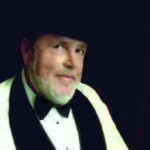
(Editor’s Note: Lance Toma is the Executive Director of the Asian & Pacific Islander Wellness Center, apiwellnessorg.)
SS: How did you become involved in your work?
LT: I actually studied engineering in college. This had a lot to do with obedience and being a good son for my family. But, I always knew that social justice was my passion. I just didn’t know how to pursue this as a profession. I was grateful to have found social work as a field of study and it is now my life-long profession and identity. I love that my work involves providing services and advocacy on behalf of communities and issues that I really care about. Over the past 20 years, I’ve worked with homeless individuals, LGBT youth, gang-involved youth in public schools, Asian & Pacific Islander communities, and HIV/AIDS communities across all communities of color. When I came out in my early 20s, I was in Chicago and began volunteering at Horizons Community Services, a social service organization for the LGBT community. Soon after volunteering, I had the opportunity to be employed there as one of their program directors. I loved it. I loved being able to support queer youth and develop programs and services that met their needs. I loved learning how nonprofit organizations effect change on behalf of communities that deserved better from our system. I feel fortunate to have found a job at A&PI Wellness Center almost 14 years ago. This brought me to San Francisco, where I met my husband and our now 20-year-old son.
SS: Name one of your key mentors and explain how he or she inspired your work.
LT: I have so many mentors, so many folks who have enabled me to be here doing the work I do. Johnny Manzon-Santos, Diane Sabin & Jewelle Gomez, Roger Doughty, Jan Masaoka, Stephen Huey, Steve Lew, Rea Carey, and so many more. If I had to pick one, I would highlight Paul Kawata, who is the executive director of the National Minority AIDS Council. I currently sit on his board. But way before I joined the NMAC board, I met him in 1999 and I was awestruck by his charisma and larger-than-life personality. Here was another Japanese American gay man leading a national organization and fighting on behalf of all communities of color. I have learned so much from Paul about leadership, perseverance, community building, and leaving no one behind when we advocate and fight for justice and equality. This is how I strive to lead at A&PI Wellness Center.
SS: If you could fix or solve one major problem in the Bay Area, what would it be and why?
LT: Being from Hawaii, I sometimes wish we had warmer weather in San Francisco. But other than that, I think San Francisco is quite amazing. I am amazed every day by the continuum of services that we have in our City and how there is such strong camaraderie among organizations, particularly in HIV/AIDS and A&PI communities. I do think we have work to do toward building a more united LGBT community that is embracing of our ethnic and racial and socioeconomic class diversity, as well as our gender identity spectrum. As a gay man of color, this is so important to me. It is about wholeness and healing for the entire LGBT community.
SS: Among your many achievements, which one are you most proud of
and why?
LT: I have had the privilege of sitting on several boards over the years. I helped to found an organization that served the homeless community in Chicago. I was on the National Youth Advocacy Coalition board in the late 90s. I currently sit on the National Minority AIDS Council board. All these organizations and their work reflect the communities and issues that I truly care about. I am proudest of all the work I’ve been able to do over the past few years at A&PI Wellness Center. In my seven years as A&PI Wellness Center’s executive director, I’m proud that I have been able to lead our organization through a pretty challenging economic environment toward a place of strength and vibrancy. I am proud that A&PI is now helping to take care of the entire transgender community of San Francisco. I am proud that we have expanded to providing free medical services to anyone and everyone in San Francisco who needs health care. I am proud to have recently worked with my board of directors to revise our mission statement to transform lives by advancing health, wellness and equality.
SS: What are your future goals and aspirations?
LT: I love that I call San Francisco my home. My husband and I have raised an amazing child in our City. I have a home with my husband. When I think about the future, I know that I will continue to contribute to our City and I am humbled to be able to do this through my work at A&PI Wellness Center. I’m inspired by the passage of the Affordable Care Act and all that it means for all of us. We have plans to become a patient-centered medical home to serve LGBT individuals and so many in the Tenderloin.
Stu Smith is board chair emeritus of Shanti Project, board chair of The Paratransit Coordinating Council, a member of the Castro Country Club Advisory Board and the LGBT Senior Task Force, and producer and host of the public access TV program “The Drag Show.” KQED has honored Stu as a 2013 LGBT Hero.
Recent Comments